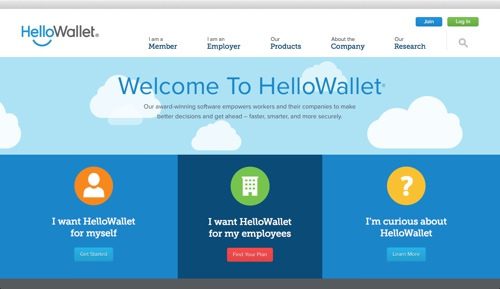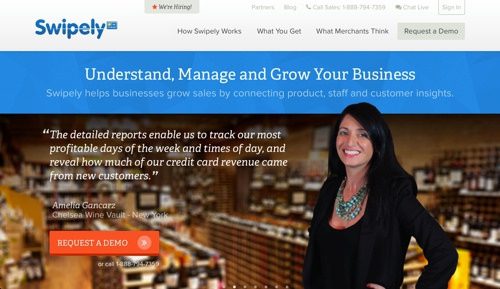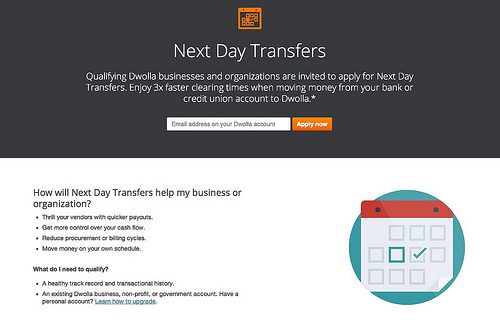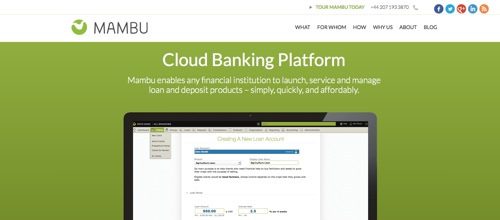In continuing our Behind the Scenes followup from FinovateSpring 2014 in San Jose, we’re taking a closer look at:
If you missed previous posts, you can check out previous Behind the Scenes with:
We’ll have further coverage next week, so stay tuned!
ChiaraMail
What they do
ChiaraMail makes email communication more secure and lightweight to enable financial institutions to communicate sensitive account details via email. It uses Envelope Content Splitting to send the subject of the email separately from the contents of the email.
This separation, which stores the body of the email on a separate and secure server, also enables institutions to send large files, as well as lets them change the contents of the email after it has been sent.
For an extra layer of security, it uses an email plug-in that indicates the bank’s authenticity to the end user with a color-coded subject line.
Stats
- Founded November 2012
- Launched in April 2014 at FinovateSpring
The experience
ChiaraMail’s solution hinges on its Envelope Content Splitting (ECS) technology which allows two parties to communicate sensitive information directly in the body of the email. It can also communicate limited-time offers that the bank can update after the message is sent, and can send items that may be too large to send via email, such as a promotional video.
The screenshot of the email below, which uses ECS, shows how a bank can communicate sensitive account information in the body of the email.
For the customer to get started, they first must download the ChiaraMail Android extension or plug-in on their computer (the company is working on an iOS version). The extension requires a one-time username and password. After it is set up, there is no need for the user to sign in each time, since it is embedded into their email client.
Once the extension is on their device, fraudulent emails are indicated with red text in the subject line, while secure emails appear with a green subject line. If a fraudulent email is selected, the user sees a customized error message.
ChiaraMail can be useful for internal and external email communications. It is ideal for retail banks that want to ensure they are not being spoofed, and insurance brokers sending sensitive information back and forth with their customers.
While ChiaraMail is currently focused on FIs, other potential uses include companies in healthcare, online retail, and medical verticals. Overall, it is ideal for any company that wants more control over their email communications, both internal and external.
Check out ChiaraMail’s live demo video here.
What they do
Dealstruck’s P2P lending platform is designed to progressively graduate small business borrowers who can’t qualify for a bank loan on to conventional financing sources. You can think of it as the step between predatory loans and a traditional loan for business financing.
Dealstruck is unique because it pre-funds all of the deals on its platform; this practice allows the borrower to receive funding within four days. After the business receives funds, Dealstruck opens the investment for the crowd to fund it.
Stats
- 15 employees
- For borrowers seeking $50,000 to $250,000 in financing
- Offers 10% to 30% yields
- Terms range from 12 to 36 months
The borrower experience
First, Dealstruck determines what amount the borrower qualifies for based on the information they supply about their funding goals, their company, personal information about the owners, and business financials.
Next, the borrower is presented with potential loan options and are asked to verify their information and to provide financial documents and bank statements.
Once the borrower supplies all the information, Dealstruck’s team of underwriters reviews
it in two business days, then calls the applicant to discuss their financing options. Financing is generally provided within four business days.
The investor experience
The investor dashboard shows the user how much money they have available to invest. They can view how their portfolio breaks down and can see details about their investments and their returns.
The doughnut chart shows them how their investments are divided. The chart in the below screenshot divides the portfolio by industry. Investors can also toggle to view their investments by how many years the borrowers have been in business.
Investors looking for additional opportunities can view all borrowers in a list. The slide bars on the left enable them to filter by the business’ annual revenue and by the number of years they’ve been in business.
Dealstruck works to keep its process fast, flexible and transparent for all parties involved. Its new API that gives institutional investors access to all borrower data, and helps them tailor decision-making criteria, supports this goal.
What they do
LendingRobot uses a proprietary algorithm to determine available and profitable P2P loans within one second and immediately invest on behalf of the user. Right now, it can invest users’ available balances in their existing Prosper and Lending Club accounts, and is working on supporting more platforms.
LendingRobot serves as a middleman to reinvest users’ account balances so quickly that it is able to access loans that potentially have better returns than the ones users were previously accessing.
Stats
- Charges a 0.45% per year fee
- No minimum investment requirement
- No setup fees
The experience
LendingRobot pulls details about loans listed on Prosper’s and Lending Club’s P2P lending platforms. To get started, the user links their Prosper or Lending Club account. In our case, we had to set up a separate API login password through Prosper before proceeding.
Users can view a list of all loans on LendingClub and Prosper accounts, as seen below, but LendingRobot recommends using its automated investment tool, which selects the best investment opportunities within seconds.
Those using the automated invest feature can select the types of loans they are interested in. For example, they can choose the amount, term, loan purpose, and expected return.
This automation massively simplifies the investment process, while aiming to get higher returns for users by helping them invest more quickly, thereby beating other investors to loans with potentially better returns.
Stay tuned later this week for more behind-the-scenes features.
![]()


 Top Image Systems
Top Image Systems 





























